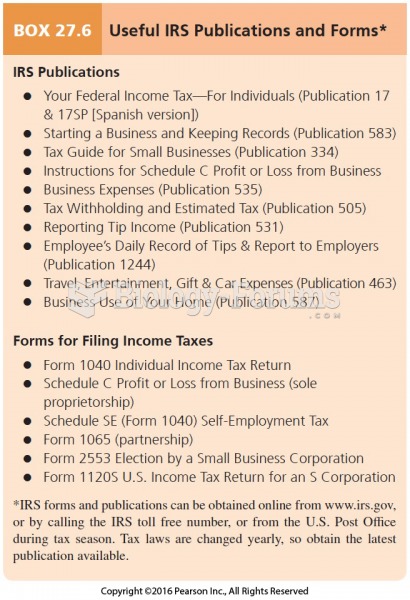Answer to Question 1
FALSE
Answer to Question 2
The five parties involved in a credit card transaction are the consumer, the merchant, the clearinghouse, the merchant bank (acquiring bank), and the consumer's card issuing bank. The basic payment transaction process works like this: The consumer first makes an online payment by sending his or her credit card information via an online form at the merchant's website. Once this information is received by the merchant, the merchant software contacts a clearinghouse (a financial intermediary that authenticates credit cards and verifies account balances). The clearinghouse contacts the card issuing bank to verify the account information. Once verified, the issuing bank credits the account of the merchant at the merchant's bank. The debit to the consumer account is transmitted to the consumer in a monthly statement. SSL is involved in sending the consumer's credit card information safely to the merchant's website. When the consumer checks out using the merchant's shopping cart software, a secure tunnel through the Internet is created using SSL/TLS. Using encryption, SSL/TSL secures the session during which credit card information will be sent to the merchant and protects the information from interlopers on the Internet.
There are several limitations to the existing credit card payment system, most importantly involving security, merchant risk, cost, and social equity. The security of the transaction is very poor because neither the merchant nor the consumer can be fully authenticated. The risks merchants face is high. Banks think of Internet credit card orders as the same type of transactions as mail orders or telephone orders. In these transactions, the credit card is not present. There is no way for the merchant to verify the legitimacy of the customer's card or identity before confirming the order. In these transactions, the merchant carries all the risk for fraudulent credit card use. Consumers can disclaim charges even though the items have already been shipped. Merchants also must pay significant charges. These high costs make it unprofitable to sell small items such as individual articles or music tracks over the Internet. Furthermore, credit cards are not very democratic. Millions of young adults and other adult Americans who cannot afford credit cards or who have low incomes and are, therefore, considered poor credit risks cannot participate in e-commerce as it is presently structured in the United States.







